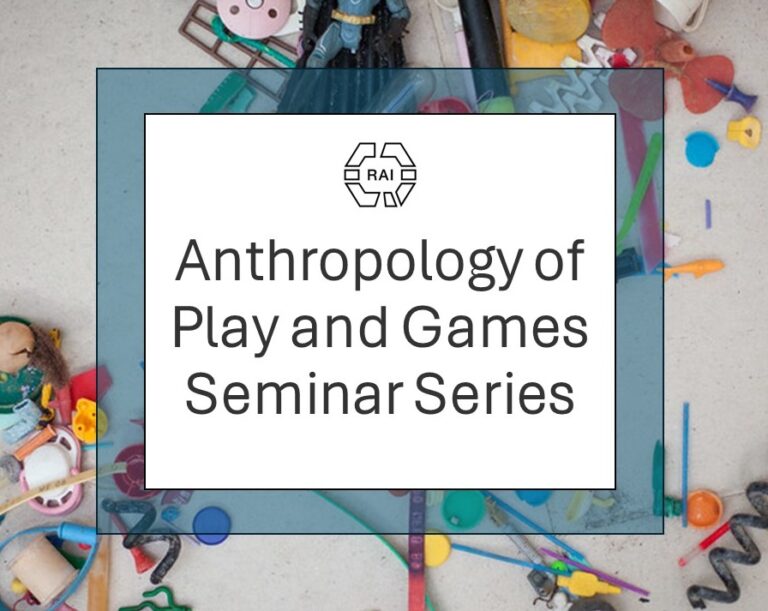Early Career Researcher Showcase: Choosing Fun, Becoming Through Storytelling and Cruel Play
A seminar series organised by Hazel Andrews (Liverpool John Moores University),
Kellynn Wee (UCL) and the RAI
This is an online event. Please register here: https://us02web.zoom.us/webinar/register/WN_Pg6csvrWT2Ggc6NlWLLxLQ#/registration
Speakers
ken tianyuan Ge, PhD Candidate, University of North Carolina at Chapel Hill
Kellynn Wee, University College London
Adriano De Francesco, University of Auckland
Chair tbc
Abstracts and Bios
Choose Fun™: Sound, Seasickness, and Coercion in Cruise Tourism’s Oceanic Postcolonial
ken tianyuan Ge, PhD Candidate, University of North Carolina at Chapel Hill
This paper develops three critical concepts (seasickness, coercion, and oceanic postcoloniality) that frame my dissertation research on musical labor and affectivity in the contemporary global cruise tourism industry. As a music scholar, I deploy seasickness—a dysphoric condition resulting from the inner ear’s misalignment with its surroundings—as an organizing metaphor for how tourist subjects apprehend (or fail to apprehend) the modalities of racial capitalism buoying up the cruise industry. Seasickness figures prominently in my analysis of David Foster Wallace’s 1996 essay, “A Supposedly Fun Thing I’ll Never Do Again.” Wallace’s nausea, I suggest, forms the tonal center of his critique, which is directed simultaneously at the industry’s imperative of “mandatory fun” and his fellow cruisers’ ability to ignore or rationalize the starkly racialized and transnational dynamic between labor and leisure onboard. Sonic coercion, embodied in both the blasting of the ship’s horn and the discursive maneuvers of Wallace’s cruisers, thus reveals itself as a compensatory technique by which the cruise industry’s postcolonial condition is drowned out (at least, for some) by the sounds of vacation. My discussion concludes with an analysis of the spate of viral cruise marketing that followed in the wake of Pharrell Williams’s 2013 hit, “Happy,” in which I demonstrate the ability of Western popular music to operate coercively within leisure capitalism, ultimately arguing that turning a seasick ear toward such techniques offers a crucial—if uncomfortable—platform for critique.
Bio
Ken Ge (he/him) is a PhD candidate in musicology at the University of North Carolina at Chapel Hill. His dissertation investigates issues of labor and social stratification in the global cruise industry’s live music sector. Blending ethnographic, music-analytic, and affective methodologies, the project theorizes Western popular music as a postcolonial structure of feeling within the contexts of global labor migration and leisure capitalism. More broadly, Ken’s research and teaching interests center on affect as it manifests at the intersection of musical performance, aesthetic judgment, and political economy.
The right place at the right time: Being and becoming through playful collaborative storytelling in tabletop roleplaying games
Kellynn Wee, University College London
Tabletop roleplaying games like Dungeons & Dragons are opportunities for people to engage in an improvisational practice of collaborative storytelling. In tabletop roleplaying games (TTRPGs), outcomes are mediated by dice, but also by the intersubjective and dynamic process of a narrative shaped by multiple authors engaged in a project of shared oral storytelling. This paper focuses on how people in Singapore create characters that strive to be in the right place at the right time. This permits players to find consequentiality in action as they pursue objectives such as being able to be good people in ways that are otherwise restricted in their everyday lives. Selves multiply, layer and proliferate within a sociocentric context as players’ characters are witnessed, ignored, judged, and reshaped by other storytellers at the table. As one of my interlocuters puts it: a story put forth at a gaming table is a proposal rather than a finished narrative. This paper explores the construction of the self in play, particularly narrative play, and connects this to other domains of everyday life, such as broader orders of determinacy and indeterminacy in Singapore’s highly rule-bound and tightly-scripted society.
Bio
Kellynn is a PhD student at University College London’s Department of Anthropology. Her research examines play and narrativity in tabletop roleplaying games, with a particular focus on sociality, collaborative storytelling, and materiality, and situates the everyday project of play within the cultural and political context of Singapore. She also convenes the AnthroPlay network and co-organises the RAI Seminar Series on the Anthropology of Games and Play.
Cruel play: Return to the ambiguity of play
Adriano De Francesco, University of Auckland
Abstract: Anthropology is experiencing bourgeoning interest in play, with much research capturing how play opens avenues toward community building, activism, and political contestation. The theme of play as a liberating force resonates with the psychological-educational tradition framing (children’s) play as a positive context of cognitive and moral development. This paper aims to complicate this picture by returning anthropology to an analysis of the “ambiguous” ontology of play (Sutton-Smith, 1997). I draw on my ethnographic fieldwork at an intermediate school in Italy, which focused on interpersonal humiliation between students. In my observations, victims, perpetrators, and bystanders tapped into the semiotic spheres of “violence” and “play” to describe the humiliations they partook in. Scholarship on bullying draws a line between “playful” and “real” aggression and reduces the bully’s use of the “play” descriptor to a strategy of self-deception and/or moral disengagement. By contrast, I suggest the humiliations I observed represented real forms of “cruel play” – practices of degradation that stripped the victim of their full personhood but simultaneously exhibited the fundamental attributes of play. This analysis unsettles the modern rhetoric that constructs play as the quintessential expression of freedom, potentially advancing our understanding of the complexity of play as a pan-human imperative.
Bio
Adriano De Francesco is a Ph.D. Candidate in Social Anthropology at the University of Auckland. His dissertation explores the ordinary ethics of interaction during Physical Education at a high school in Aotearoa New Zealand. His previous research was based in Italy and concerned interpersonal humiliation and bullying in a middle school. Adriano serves as the Graduate Student Representative for the Anthropology of Children and Youth Interest Group (ACYIG) of the AAA and is an Editorial Assistant for American Ethnologist.



